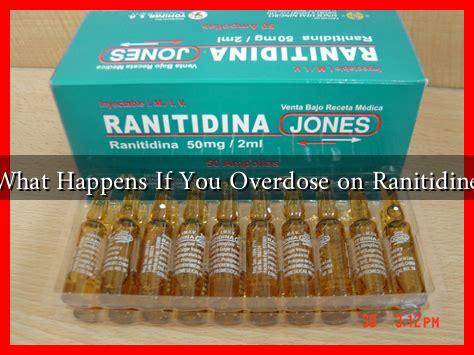-
Table of Contents
What Happens If You Overdose on Ranitidine
Ranitidine, a medication commonly used to treat conditions like gastroesophageal reflux disease (GERD) and peptic ulcers, belongs to a class of drugs known as H2 blockers. It works by reducing the amount of acid produced in the stomach. While it is generally considered safe when taken as prescribed, an overdose can lead to serious health complications. This article explores the implications of a ranitidine overdose, its symptoms, potential consequences, and what to do in such situations.
Understanding Ranitidine
Ranitidine was widely prescribed for its effectiveness in treating acid-related disorders. However, it was withdrawn from the market in 2020 due to concerns about impurities linked to cancer risks. Despite this, understanding the effects of an overdose remains crucial for those who may still have access to the drug or are using alternatives.
Symptoms of Ranitidine Overdose
Overdosing on ranitidine can lead to a range of symptoms, which may vary in severity. Common symptoms include:
- Drowsiness or lethargy
- Confusion or disorientation
- Headaches
- Rapid heart rate (tachycardia)
- Gastrointestinal disturbances, such as nausea or vomiting
- Severe allergic reactions, including rash or difficulty breathing
In extreme cases, an overdose can lead to more severe complications, such as:
- Seizures
- Coma
- Kidney failure
Case Studies and Statistics
While specific statistics on ranitidine overdoses are limited, a review of general H2 blocker overdoses provides insight into potential risks. A study published in the Journal of Medical Toxicology indicated that overdoses of H2 blockers, including ranitidine, can lead to significant morbidity, particularly in vulnerable populations such as the elderly or those with pre-existing health conditions.
In one documented case, a 70-year-old patient experienced severe confusion and lethargy after taking an excessive dose of ranitidine. Medical intervention was required, and the patient was treated with supportive care, highlighting the importance of monitoring and managing overdose symptoms promptly.
What to Do in Case of an Overdose
If you suspect that you or someone else has overdosed on ranitidine, it is crucial to seek medical attention immediately. Here are steps to take:
- Call emergency services or go to the nearest hospital.
- Provide medical personnel with information about the amount of ranitidine taken and the time of ingestion.
- Do not induce vomiting unless instructed by a medical professional.
Medical professionals may perform various interventions, including:
- Activated charcoal to limit drug absorption if the overdose was recent.
- Intravenous fluids to maintain hydration and support kidney function.
- Monitoring vital signs and providing symptomatic treatment as necessary.
Preventing Ranitidine Overdose
To prevent an overdose, it is essential to follow these guidelines:
- Always take ranitidine as prescribed by a healthcare provider.
- Do not exceed the recommended dosage.
- Keep track of all medications being taken to avoid interactions.
- Consult a healthcare professional before making any changes to your medication regimen.
Conclusion
Overdosing on ranitidine can lead to serious health complications, including confusion, rapid heart rate, and even coma. While the medication has been withdrawn from the market due to safety concerns, understanding the risks associated with its overdose remains vital. If an overdose occurs, immediate medical attention is crucial for effective treatment. Always adhere to prescribed dosages and consult healthcare professionals for any concerns regarding medication use. By being informed and cautious, individuals can significantly reduce the risk of overdose and its associated dangers.


